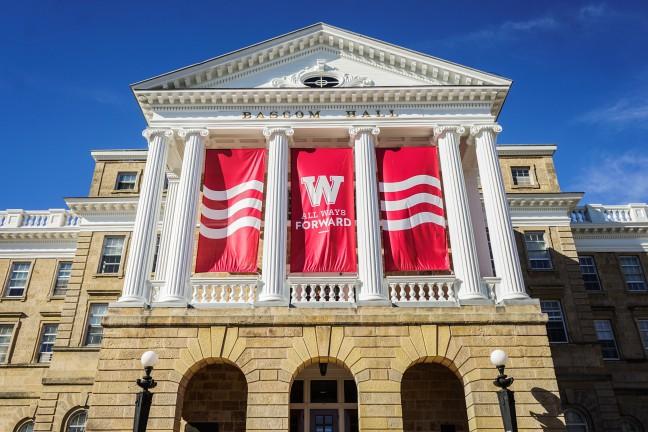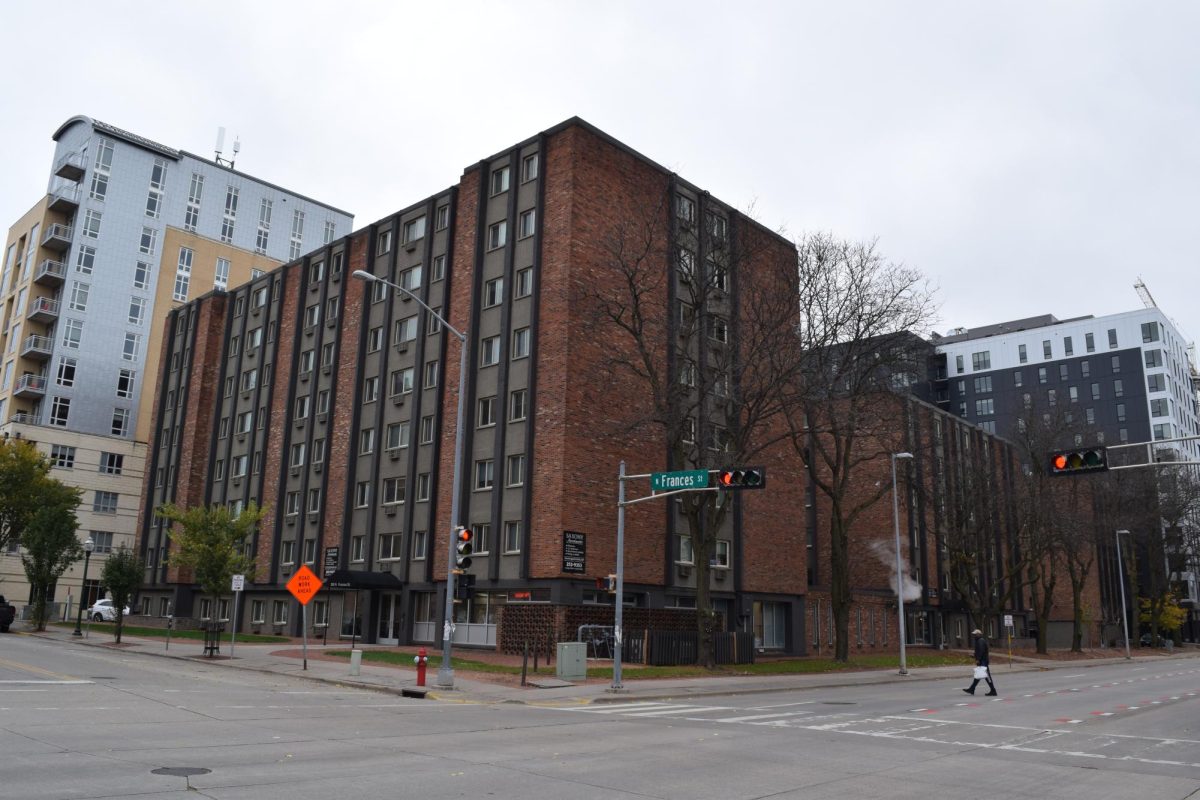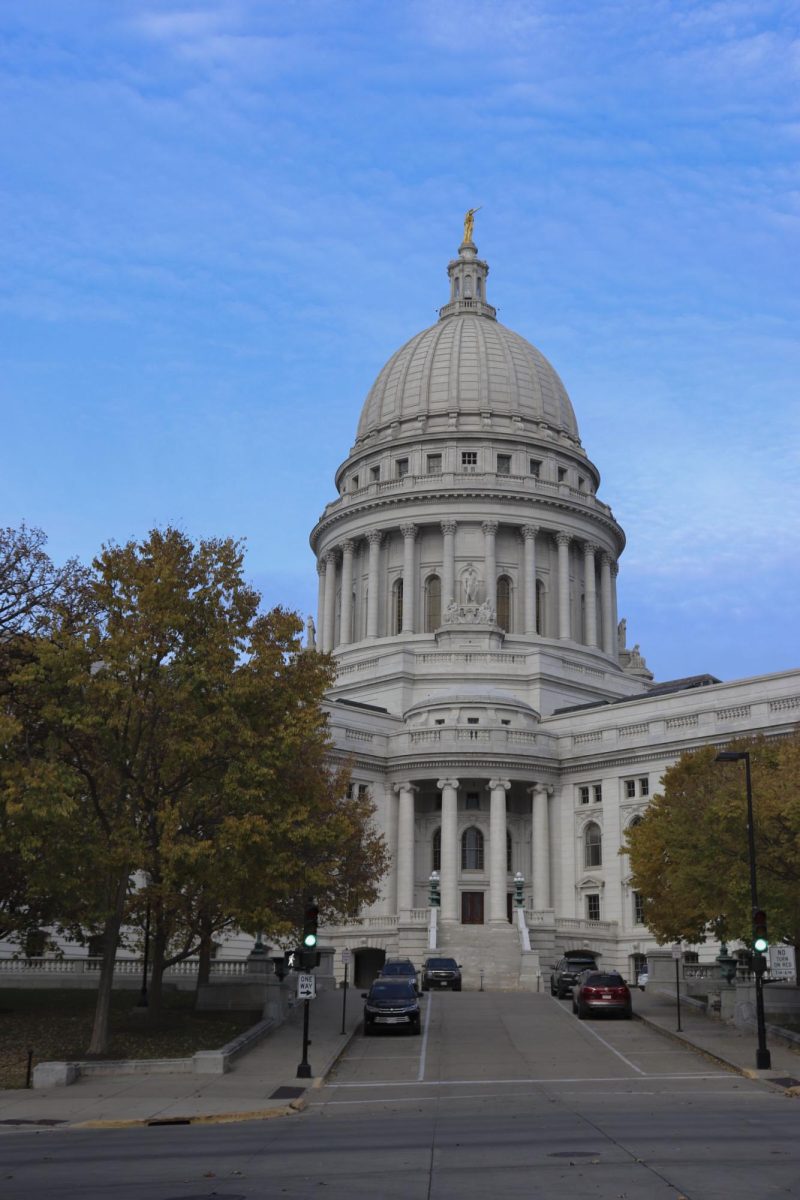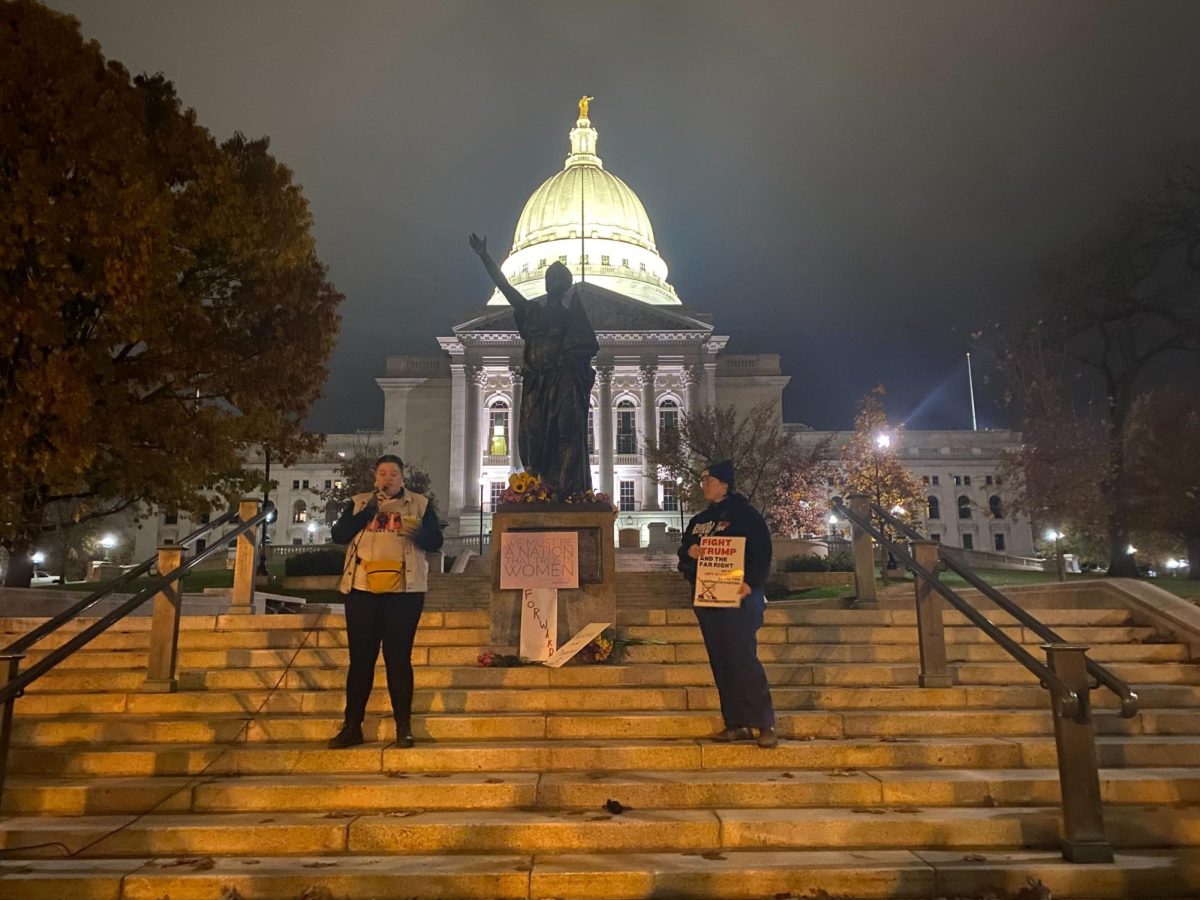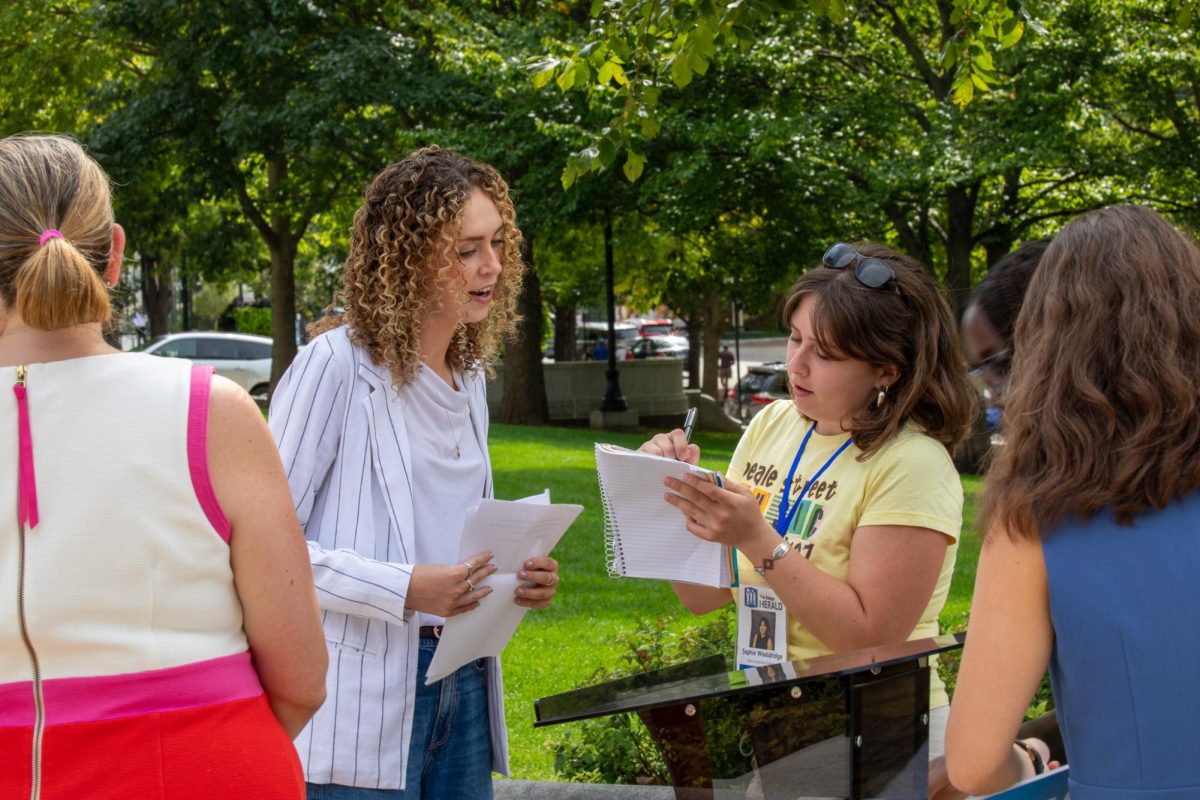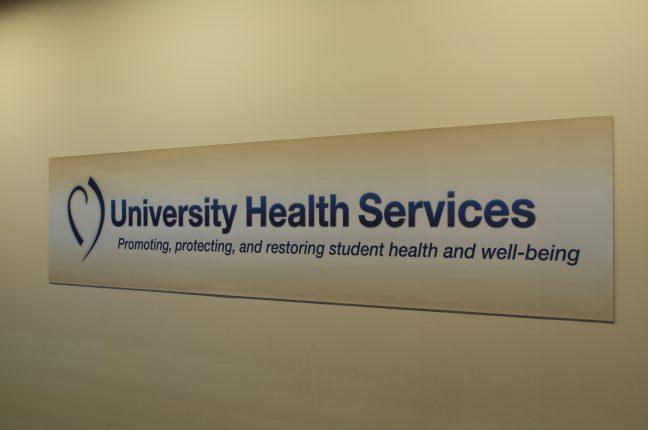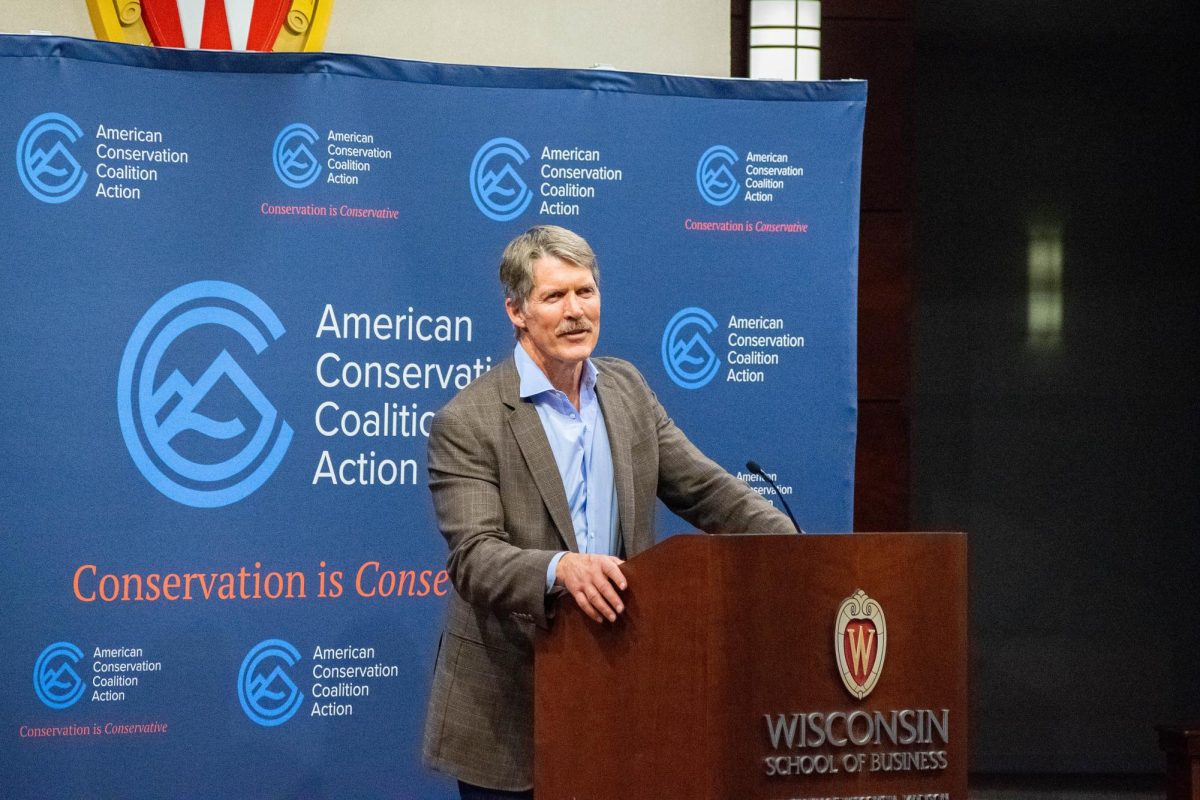President Joe Biden issued an executive order on Sept. 9 to require all federal workers and contractors to receive the COVID-19 vaccine or be tested weekly.
In the executive order, Biden strongly backed the Centers for Disease Control and Prevention’s conclusion that the most effective way to slow the spread of COVID-19, the delta variant and other variants is to be vaccinated. Currently, there are three FDA authorized COVID-19 vaccines — Pfizer-BioNTech COVID-19 Vaccine, the Moderna COVID-19 Vaccine and the Janssen COVID-19 Vaccine, according to President Biden’s executive order.
While larger Madison companies and other universities have begun to require vaccines, the University of Wisconsin has taken a different approach. The UW policy for students and employees requires anyone who has not provided proof of vaccination to University Health Services to get tested weekly on campus, according to an email UW sent to students.
UW’s approach also includes emphasizing the vaccination, masking and testing program for those that are unvaccinated, at high risk, or anyone currently experiencing symptoms, UW spokesperson Meredith McGlone said in an email statement to The Badger Herald.
With this policy in place, UW’s vaccination rate for students and employees is currently 91.5 percent, overall, as of Sept. 17 and continues to increase. A rate that stands out from other universities and other large institutions in the state of Wisconsin, McGlone said.
UW announces face masks will be required in all campus buildings again
The Office of the Chancellor said In an email sent to students that other universities have lower rates, such as Pennsylvania State University and Indiana University have rates of 80 percent and 86 percent, respectively.
UW department of political science professor Barry Burden said the university culture and protocols have allowed for high vaccination rates without requiring vaccines for all students and employees.
“That is a success, for sure,” Burden said. “There are other universities that actually have mandates that have not gotten to the same level of vaccination. So it’s impressive that the kind of softer approach that UW has taken, has gotten the university pretty far.”
As of Sept. 15, there have been a total of 1,125 non-compliant students and employees out of the community of over 65,000 people. Though the number of non-compliant individuals has decreased by more than 70% in recent weeks, compliance efforts will begin to ramp up next week with outreach to individuals who are in non-compliance, McGlone said.
“If student employees remain non-compliant, they will be informed that disciplinary action is likely unless immediate action is taken,” McGlone said.
Campus community members who are opposed to the university’s policy and the COVID-19 vaccine might be unlikely to voice their opinion due to it being an unpopular stance on the campus, Burden said.
Wisconsin abortion laws to be under the microscope in 2022 gubernatorial election
The majority of UW students and employees seem to be compliant and onboard with the university’s policy. After over a year of being online, most students are eager to return to in-person activities associate dean for research and graduate education Marulasiddappa Suresh said.
“I have not heard any complaints about students not wearing [masks] or anything like that,” Suresh said. “I think [students] have been very excited to come back and they understand what is at stake here”
Though students and employees are following the UW guidelines, the pandemic continues to impact the recruitment of graduate programs within the university. Like most recruitment processes, graduate recruitment processes at UW were transitioned to virtual instead of bringing students to Madison for interviews, Suresh said.
While virtual recruitment has been made to work out of necessity, it is not as effective as in-person recruitment.
“[The university] may have fallen a little short on recruiting enough graduate students. Because of COVID, we have not been able to bring [prospective graduate students] physically here, so it is all virtual,” Suresh said. “[Virtual] is not very effective when you want to attend an institution where you have to spend 5 years of your time to do a Ph.D.”
Graduate program recruitment has been affected, but opportunities for undergraduate employment are increasing.
With the implementation of UW’s policy, in-person activities have resumed and there are quite a few employment opportunities for students on campus, McGlone said.


